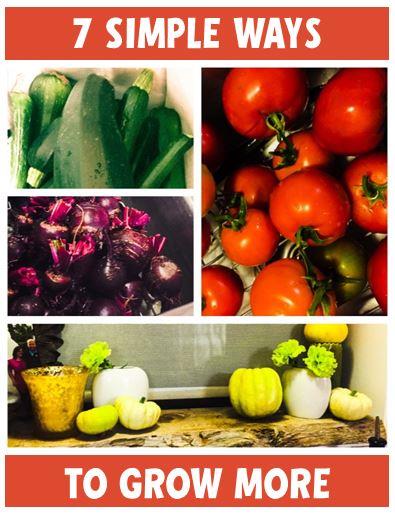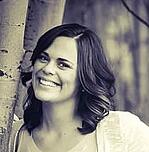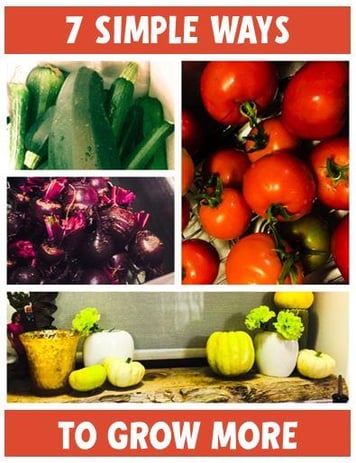 For me, gardening is the beginning of a personal and rewarding real food, farm-to-table experience. As an outdoor enthusiast and dedicated home cook, gardening is a blend of my two passions. It’s incredibly fulfilling to eat what you grow. Often, the fresh vegetables, fruits and herbs I cultivate in my garden taste even deeper and richer than what I can get in the store.
For me, gardening is the beginning of a personal and rewarding real food, farm-to-table experience. As an outdoor enthusiast and dedicated home cook, gardening is a blend of my two passions. It’s incredibly fulfilling to eat what you grow. Often, the fresh vegetables, fruits and herbs I cultivate in my garden taste even deeper and richer than what I can get in the store.
I’ve been gardening now for about seven years, and although I feel more confident every season, I still learn so much every year — usually by making mistakes and uncalculated decisions. Like most things I do, my entrée into gardening was perhaps a bit hastier than it should have been. Rather than researching and planning (because why would I do that?!), I assumed knowledge from long ago college horticulture courses would get me through. Plant some seeds and stuff will grow, right? Naturally, I assumed wrong and have learned lots of lessons the hard way.
With the hope of saving you some time on trial and error, I’m sharing seven of my non-expert insights from seven years’ worth of gardening lessons.
1. You’ve gotta weed.
If you’re going to have a garden, you need to weed it. Daily attention is best, every couple of days will do, but if you let it go much longer, it can become a nightmare. Certain weed seeds can live in the soil for up to forty years and are tough, if not impossible, to eradicate — so weed control is a must. There are many philosophies about soil cultivation, mulching, and irrigation for weed prevention. Most have merit, but ultimately your weed control method will vary based on your unique garden. Just know that weeding is imperative to a healthy garden, and it’s tough to catch up when you’re behind — I know this from experience — so do what you can to keep on top of it!
2. Read directions and maturity dates.
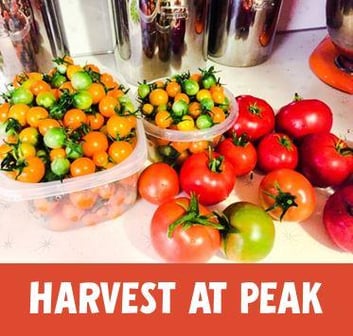 Whether you’re starting your seeds or buying your plants from the greenhouse, make sure you know what you’re in for. Just because you bought all your seeds at once and are super excited to start them, it doesn’t mean you should start them all at once. Plants mature at different times and thrive in varying growing conditions; by starting or planting things too early or too late you can miss your peak growing windows. So really do pay attention to those dates and directions on the labels.
Whether you’re starting your seeds or buying your plants from the greenhouse, make sure you know what you’re in for. Just because you bought all your seeds at once and are super excited to start them, it doesn’t mean you should start them all at once. Plants mature at different times and thrive in varying growing conditions; by starting or planting things too early or too late you can miss your peak growing windows. So really do pay attention to those dates and directions on the labels.
3. Not everything is going to grow in your area.
As obvious as it sounds, it’s so easy to get tempted to try new and exotic plants — but some of them just aren’t going to grow. The big box stores often have great selections, but local greenhouses and nurseries carry plants that will grow well in your neighborhood, not just your zone. So, when it comes to buying seeds and plants, it’s really good to go local! If you’re getting bored with the same old things, consider trying heirloom varieties of what you know will grow rather than trying new plants that aren’t ideally suited for your area.
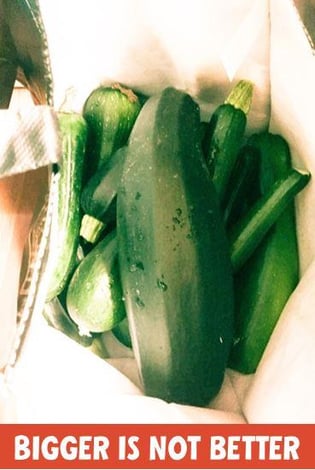 4. Understand your soil.
4. Understand your soil.
If you think you’re doing everything right and stuff mysteriously isn’t growing, look below! Just as it is for a farmer’s field, the soil in your garden is crucial to your gardening success. Make sure it is healthy and add compost to it as needed. Rotate your plot — don’t grow your potatoes in the exact same spot every year, or the soil will become more depleted in that one spot. And if you’re starting from scratch, consider sending a soil sample to your local university extension to see if they have any suggestions about how to tend your soil for best results. Soil alkalinity is a big factor in garden success, and it can be mended if less than ideal. Aside from sunlight and water, soil is the most important thing to a successful garden — so don’t ignore it.
5. Bigger isn’t always better.
This applies to both the size of the garden and the plants that come from it. First, just because you may have a great big space you’re excited to fill with plants, it doesn’t mean you should. Bigger gardens require more time and attention — so if you have a couple of big summer vacations planned, consider scaling back.
Second, bigger fruits and veggies also aren’t always better. You may feel accomplished because you just grew a zucchini the size of your leg, but that zucchini isn’t going to taste nearly as good as the smaller ones. Again, read the directions (or consult your local extension agent) and make sure you’re harvesting at the right time. Just as with planting times, ideal harvest times vary widely from plant to plant.
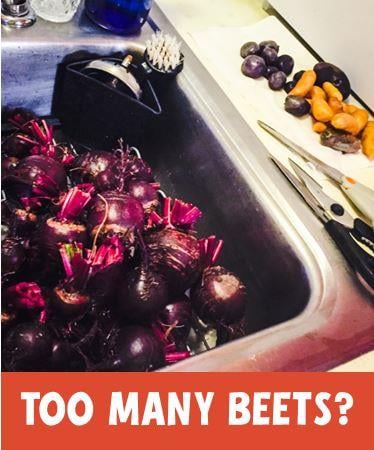 6. Grow stuff you’re going to use.
6. Grow stuff you’re going to use.
If you and your family don’t like it, don’t grow it. This sounds simple enough, but it’s easy to get carried away when you’re picking out beautiful looking plants and seeds. Before you know it, its harvest time, and you have two bushels of zucchini that you don’t even really like (true story). Even though your garden is your own, it’s still important to think about food waste. Be careful to plant things you’re going to use and if you overdo it, identify friends, family, or a local food bank to help you with what you can’t put to use.
7. Everybody’s different so don’t give up.
Occasionally I hear people talk about how hard it is to grow a certain plant and then talk about another like it’s really easy. This gets me discouraged from growing the “hard” plants and makes me feel like a failure when I struggle with the “easy” ones. One thing I’ve learned, though, is that every garden and gardener is a little different. While it’s important to be realistic about what grows in your area and zone, don’t be afraid to try new and different plants just because someone you know struggled with them. It’s good to listen, but let your personal experiences become your benchmarks and don’t entirely rely on the wisdom of your neighbors.
If this year you plant your first vegetable garden — good luck! And, if this year you plant your fiftieth vegetable garden — good luck! Because, no matter what, luck is one of the key elements in a green thumb. Enjoy being at the whim of Mother Nature and being outside. And most of all, enjoy the bounty you reap. I know I can’t wait to make recipes like these with the veggies and herbs I’m hoping to harvest from my garden!
Here are some great veggie-filled recipes to try with your garden’s bounty:
- White Bean Crostini
- Garden Fresh Veggies & Pasta
- Spring Soup
- Chickpea Crostini with Fresh Spring Vegetables
- Sautéed Kale with Toasted Garlic, Shallot, Chili, and Lemon
- Kale Salad with Candied Pumpkin and Sunflower Seeds, Walnuts, and Golden Raisins
